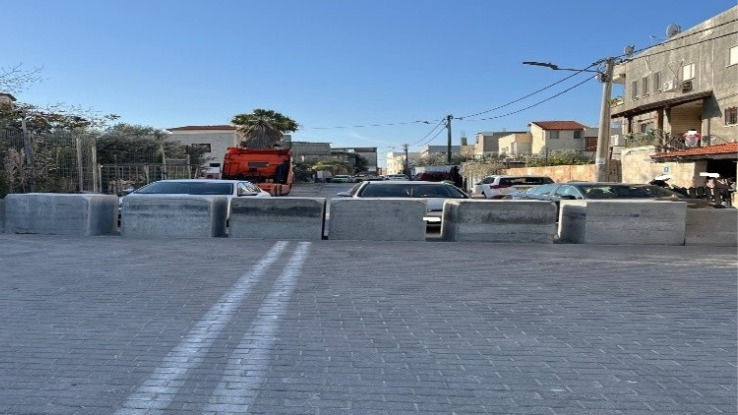Don't Forcibly Relocate Negev Mountain Bedouin Communities to the Village of Abda
- ACRI
- Nov 15, 2022
- 3 min read
Updated: Apr 17, 2023

On November 10, 2022, on behalf of residents of Bedouin communities in the Negev Mountains, ACRI and the nonprofits Bimkom, Planners for Planning Rights, and Keshet, Community | Culture | Environment submitted two objections to the State’s plan for forcible relocation to the village of Abda. Objections were submitted against their intent to evict residents from Ramat Tziporim, Nahal Hawwa, and Nahal Aricha to Abda, against their will, so as to deem the places in which they dwell non-residential tourist attractions.
Due to this intention, the opposition claimed that the State disregarded the government's promise to permit residents of Ramot Tziporim to establish a settlement for themselves on their own land. It further claims that the State disregards the different social and cultural backgrounds of Bedouin communities living in various distinct locations, and seeks to move them to one single place of residence against their will. Such a move is incompatible with their lifestyle and desire to maintain each community’s unique way of life and tribal customs. Thus, for example, the objections explain how the Bedouin communities currently residing in Nahal Hawwa and Nahal Aricha are the last remnants of a semi-nomadic culture. Such nomadism has existed in the Negev Mountains from the 16th century to date—a culture that has already been severely harmed, primarily throughout the 1970s when compelled to renounce nomadic herding customs. If executed, residents’ relocation from their current localities will cause them even further harm.
Another claim put forth by the objections is that transforming the existing residential sites of Ramot Tziporim, Nahal Hawwa, and Nahal Aricha into hospitable desert tourist attractions of a Bedouin nature, without any option for Bedouin residents of those communities to reside therein, violates their basic rights. Furthermore, it pulls the rug out from under the program itself, considering that the presence of the Bedouin population on these sites constitutes an essential basis for the development of desert tourism that the State seeks to promote.
The organizations further object to the State's intention to condition recognition of the Bedouin village of Abda, upon the consent of the three Bedouin communities of Ramat Tziporim, Nahal Hawwa, and Nahal Aricha, to move to live there. They claim that this sets a precedent, which creates great tension between the three communities living in the Negev Mountains, who refuse to move to live in Abda, and the community currently living in Abda, which naturally supports recognition of the village.
The organizations seek to enable the residents of Ramot Tziporim, Nahal Hawwa, and Nahal Aricha to continue to live in their current places of residence, while declaring these sites desert tourist attractions in which they may live. To this end, they propose a resolution through the establishment of suburban neighborhoods near the center of the village of Abda, while maintaining internal independence and honoring the tribal lifestyle and customs of the various tribes living in the Negev Mountains.
ACRI attorney Abir Joubran Dakwar: “The authorities uphold the failed policy of concentrating Bedouin in the Negev with no consideration of the uniqueness and distinction between Bedouin communities in the Negev Mountains and without any consideration of the desires of each and every community." From a planning point of view, it is already possible to establish two localities and enable an arrangement on site for both communities in the Negev Mountains: Ramat Tziporim, which has already received symbolic recognition, and Abda, which was recently formally recognized. Likewise, it is also possible to declare Nahal Aricha and Nahal Hawwa residential tourist centers, which enable communities to continue living there while developing tourism projects."
Bimkom urban planner Cesar Yeudkin: “As in many other cases, the current plan has been promoted for many years without genuine participation on behalf of the target population. The proposal to require population groups to be uprooted from their places of residence as a condition for recognizing and formalizing another locality, is harmful and unprecedented. Should matters have been conducted differently, it would have been possible to find an acceptable consensual planning solution long ago, for all stakeholders: the Bedouin population, the regional council, and various State authorities. Specifically in this area, it is of utmost importance to find alternative localities that meet the needs of Bedouin communities and the development of unique local tourism.”
Keshet CEO Ezry Keydar: “The Bedouin communities in the Negev Mountains are of a culture that is at risk of extinction. They seek statutory tools to preserve their culture, while the State insists on providing plans that will bring about the opposite outcome, plans that will lead to the total extinction of the semi-nomadic culture within less than a generation. The State repeats the same planning mistakes that contributed to the social crisis among Bedouin society, with which both Bedouin in the northern Negev and law enforcement authorities contend. How does the State expect a different outcome here?”








